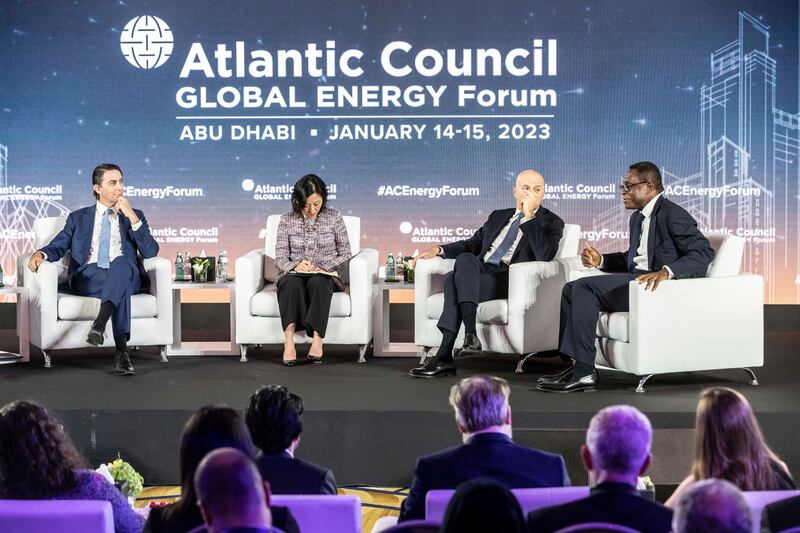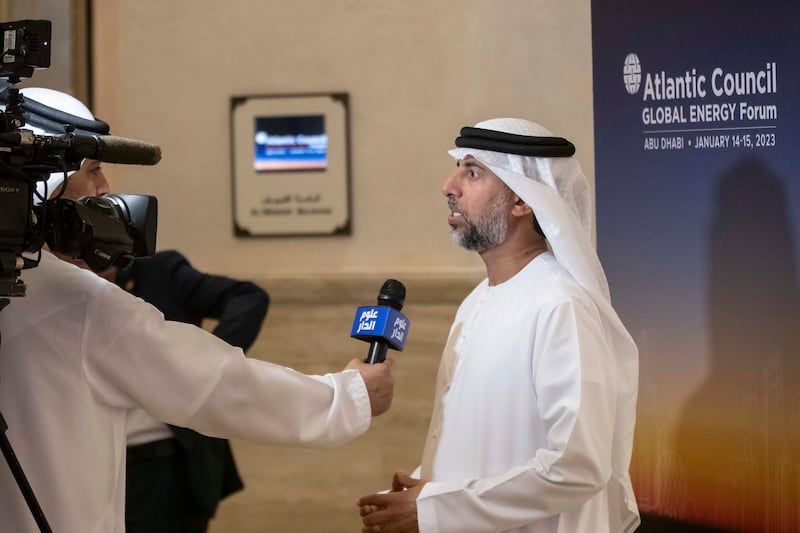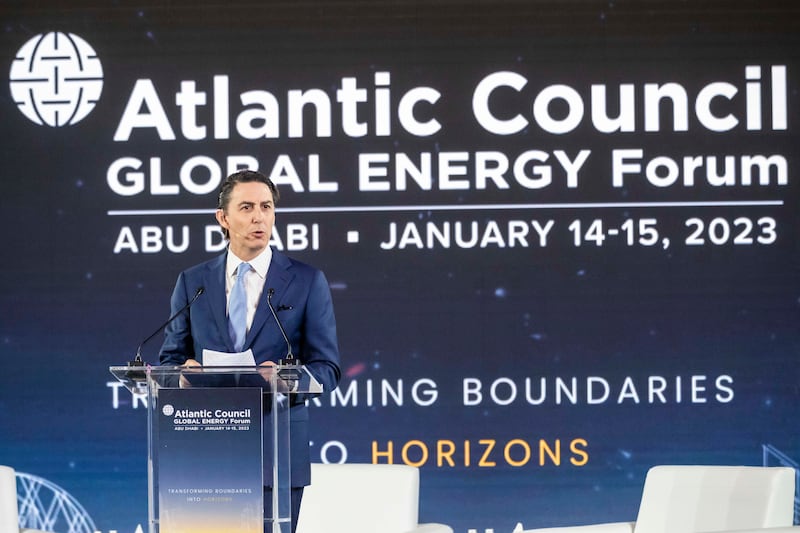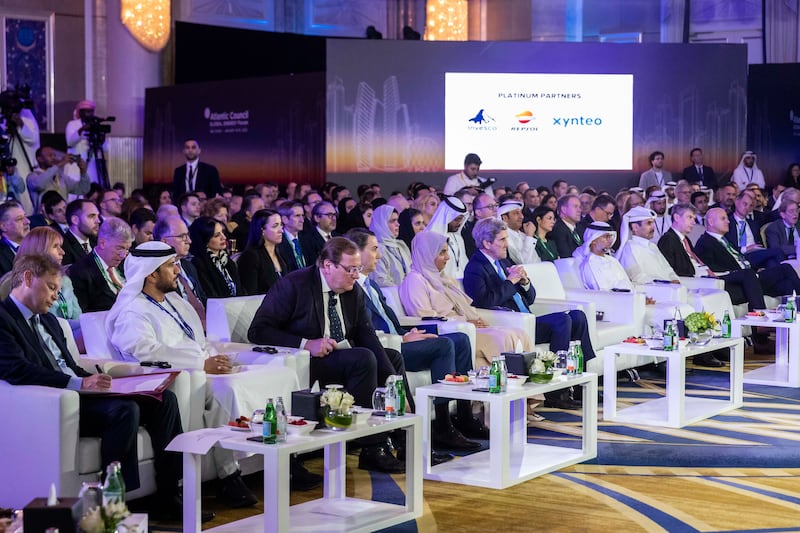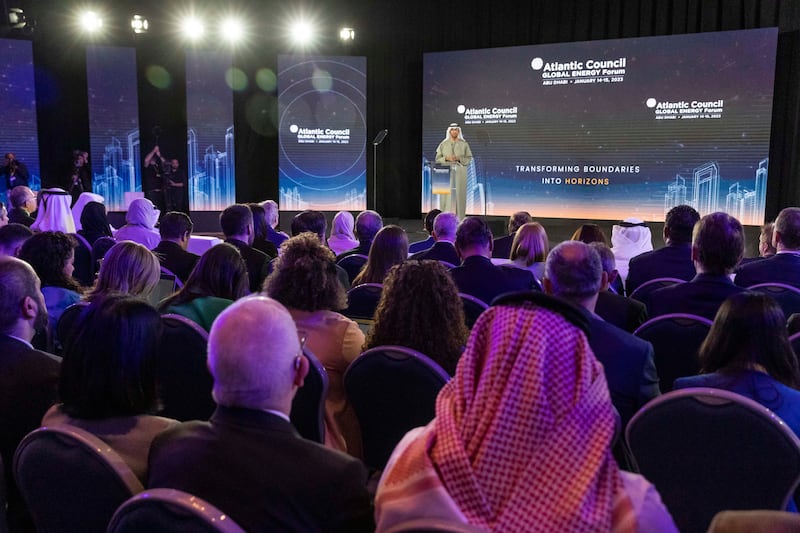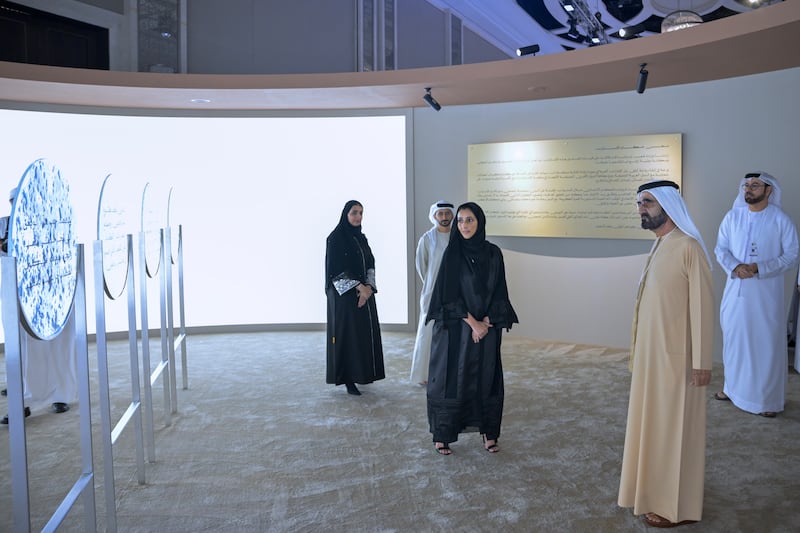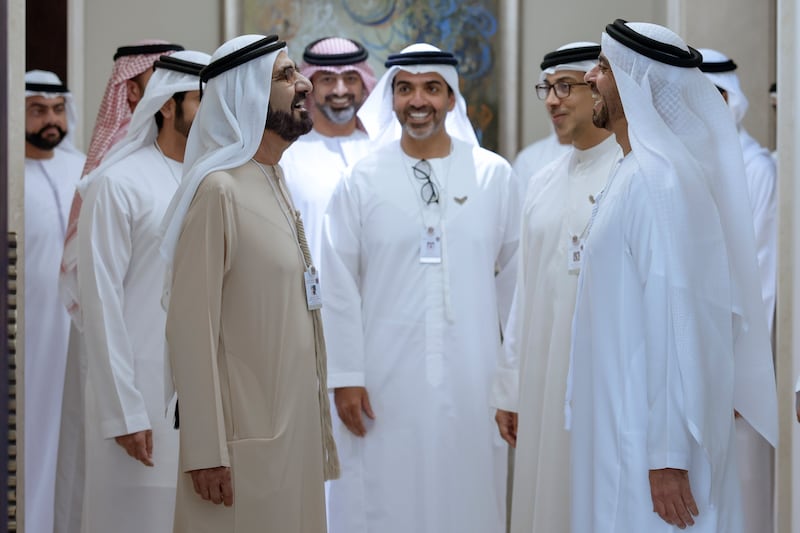The world will require "transformational" progress to meet net-zero targets, according to Dr Sultan Al Jaber, president-designate of Cop28.
"Over the last 15 years, the UAE has invested a total of $50 billion in renewable energy and clean tech globally, and plans to invest another $50 billion in the years ahead."
"Let’s create a paradigm shift for tangible progress. And let’s remember that reaching net-zero emissions will deliver the biggest market transformation with the greatest economic and human promise since the first Industrial Revolution,” said Dr Al Jaber.
Cop28 President-designate Dr Sultan Al Jaber says UAE will lead with 'great sense of urgency'
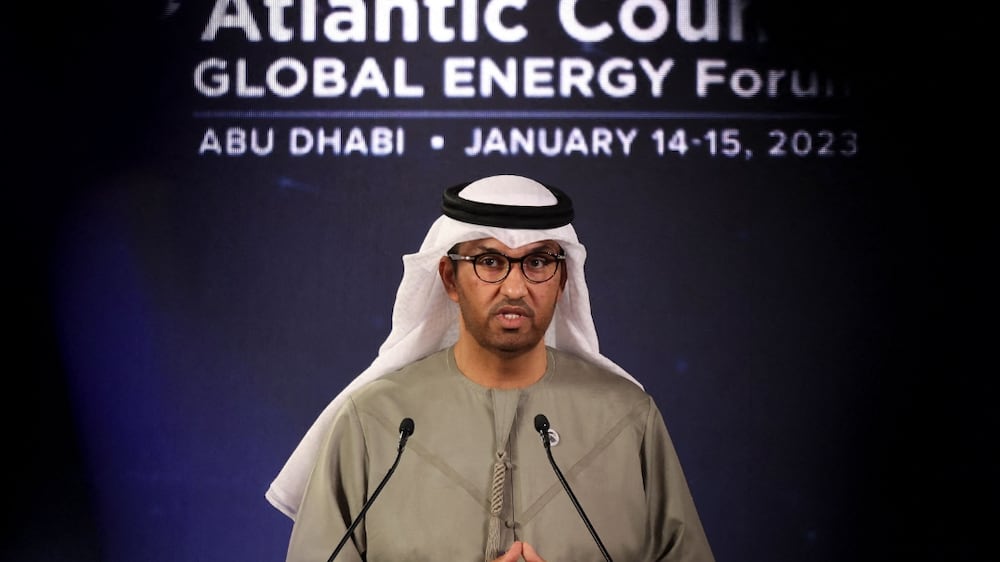
Dr Al Jaber, who is also Minister of Industry and Advanced Technology and managing director and group chief executive of Adnoc, was speaking at the Atlantic Council Global Energy Forum on Saturday, where he urged countries and energy stakeholders to "hold back emissions, not progress".
The world is "on its way to being home to 9.7 billion people, and we'll have to produce 30 per cent more energy than what is available today", Dr Al Jaber said.
"As long as the world still uses hydrocarbons, we must ensure they are the least intensive possible. We're working with the energy industry on accelerating decarbonisation, reducing methane and expanding hydrogen," he added.
His remarks come days after he was named as president-designate of the UN Cop28 climate change summit, which will be held in the UAE this year.
Dr Al Jaber, who is the UAE special envoy for climate change, will take on the leading role for the crucial 13-day talks in November.
"We will use our experience, our ambition and [our] deep and rich network of partnerships to inform our approach to Cop28," Dr Al Jaber said.
“We don’t need to wait for the Global Stocktake to know what it will say. We are way off track. The world is playing catch up when it comes to the key Paris goal of holding global temperatures down to 1.5 degrees. And the hard reality is that in order to achieve this goal, global emissions must fall 43 per cent by 2030."
The energy forum is a part of the Abu Dhabi Sustainability Week, which will run from January 14 to January 19, and bring together heads of state, policy makers and industry leaders for a series of dialogues on the transition to a net-zero future.
This year's ADSW comes against the backdrop of a global energy crisis that has left countries in Europe and elsewhere scrambling for alternative energy sources.
Brent crude soared to a near 14-year high of $140 a barrel after Russia’s invasion of Ukraine in February. The international benchmark is currently trading at about $84 a barrel.
"With China reopening, hopefully, we will see a pick-up in the [crude] demand and when we meet, we will analyse that as usual," Suhail Al Mazrouei, the UAE's Minister of Energy and Infrastructure, told reporters on the sidelines of the event.
"We will always take the decision that serves balancing the market."
At its last meeting in October, the Opec+ group of oil producing countries decided to slash its collective output by 2 million barrels per day until the end of 2023, citing concerns about a global economic slowdown. The group's next meeting is on June 4.
"The UAE is committed to the decision that we took... [for] any decision, there is a process of taking that decision, so we have to wait," Mr Al Mazrouei said.
Analysts expects crude prices to rebound to between $100 and $110 a barrel this year, driven by a recovery in China, the world’s second-largest economy and top crude importer.
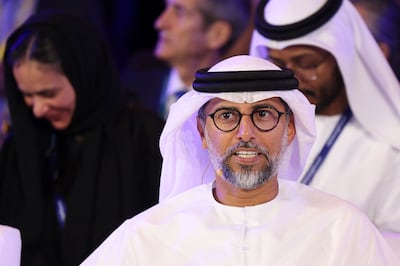
China’s crude imports are set to increase by 1.1 million bpd in 2023, compared with last year, with the country reopening and issuing new product export and crude import quotas, Energy Aspects said in a report earlier this week.
Gulf energy ministers urged countries to invest in more natural gas infrastructure as Russia’s invasion of Ukraine threatens energy security in many parts of the world.
“I don't agree that gas is a transition fuel… I think it's the destination fuel until we have a realistic solution,” Saad Al Kaabi, Qatar’s energy minister, said.
Europe, faced with dwindling Russian gas exports, is scrambling for alternative gas sources. After soaring to record levels in August last year, European gas benchmark prices dropped to a one-year low recently as demand eased due to warm weather.
“The issue is what’s going to happen if they want to replenish their [natural gas] storage this year and the next year,” said Mr Al Kaabi.
“There isn’t much gas coming into the market until 2025 to 2027, so I think it’s going to be a volatile situation for some time.”
Mr Al Mazrouei said that while oil and gas will continue to play an important role, the fossil fuels will not be enough to meet an expected increase in global demand.
Cop28 in UAE: Three things to watch out for
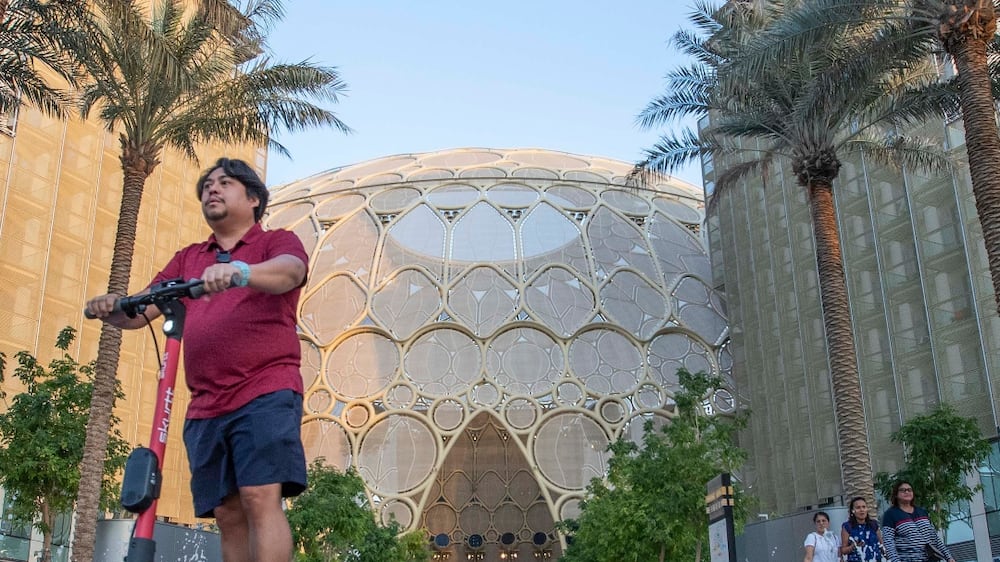
“Oil and gas are finite resources and they are not going to stay there forever,” said the UAE energy minister.
“Within the 23 countries in the Opec+, the reduction in the ability to produce is more than 3.7 million barrels since 2000 … that tells that many countries are in a decline mode.”
The UAE, the Opec’s third-largest producer, is investing Dh600 billion ($163.5 billion) in clean and renewable energy projects over the next three decades as it aims to achieve net-zero emissions by 2050.
For the first time, the week-long ADSW event will feature a Green Hydrogen Summit, which will highlight the fuel’s potential to decarbonise key industries while helping countries to achieve their net-zero objectives.
Hydrogen, which can be produced using both renewable energy and natural gas, is expected to play a key role in the coming years as economies and industries transition to a low-carbon world to mitigate climate change.
Globally, the size of the hydrogen industry is expected to hit $183 billion by 2023, up from $129 billion in 2017, according to Fitch Solutions.

